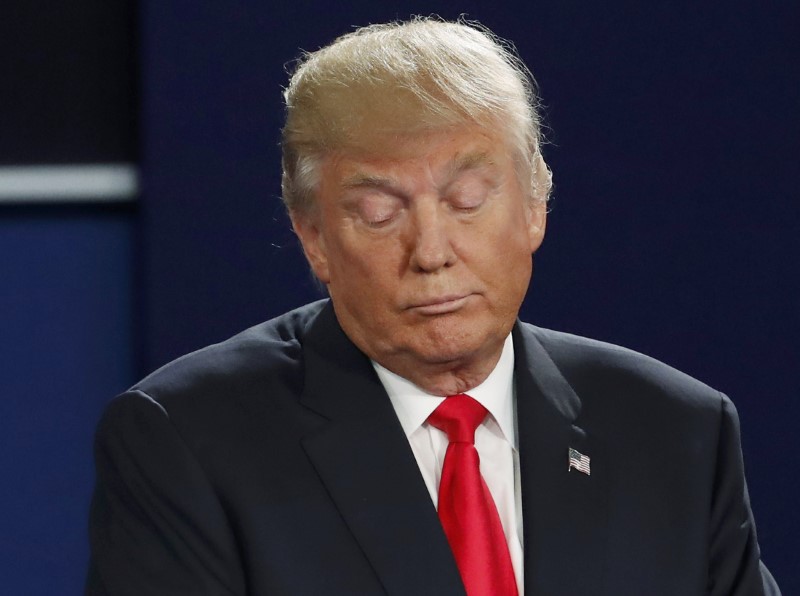By David Morgan
WASHINGTON (Reuters) - Republican presidential candidate Donald Trump in Sunday's debate reiterated his promise to kill the "carried interest" tax loophole that benefits hedge fund managers and others - but his tax plan offers other goodies to Wall Street financiers, a nonpartisan tax research group said on Tuesday.
Trump and Democratic rival Hillary Clinton's tax plans, which differ greatly, were compared side-by-side in reports by the Tax Policy Centre which focused on carried interest.
The loophole allows financial managers at private equity, hedge fund and other qualifying firms to pay the tax rate for capital gains on part of their income instead of the higher income tax rate.
Clinton would close the loophole with no compensating benefits for those hit, the centre said in a report.
Trump's plan, the centre said, would be complicated.
Under his proposal, hedge funds and private equity partnerships would qualify for a special 15 percent business tax rate, depending on their size.
That would be well below Trump's proposed income tax rates and below the rate that funds now pay under carried interest rules.
The Trump campaign had no immediate comment on the report.
"Literally, he is getting rid of carried interest," said Eric Toder, co-director of the centre, which is a collaboration of the Urban Institute and the Brookings Institution.
"The question is what else is there in the plan that affects hedge funds, and the reduction in the business income tax rate to 15 percent gives them a much better deal," Toder said.
That advantage could be cancelled out for large investment fund managers, who would also be subject to a 20 percent dividend tax under Trump's plan.
But analysts said Trump has not said what constitutes a large business.
Broadly, Trump has said lower business tax rates would unleash economic and job growth in the United States.
The centre's report said Trump's tax plan would reduce federal tax revenues by $6.2 trillion over a decade. About three-fourths of the decrease, the centre said, would come from cutting business taxes, including reducing corporate income tax from 35 percent to 15 percent, and repealing the alternative minimum tax for wealthy people.
If carried out, Trump's tax cuts would increase budget deficits if there were no spending cuts, and result in higher interest rates that could crowd out investment, the report said.

Clinton's plan would increase tax revenues by $1.4 trillion with nearly all the increase coming from people with incomes in the highest 1 percent. Her plan would not lower the federal debt because of spending programs she has proposed, analysts said.